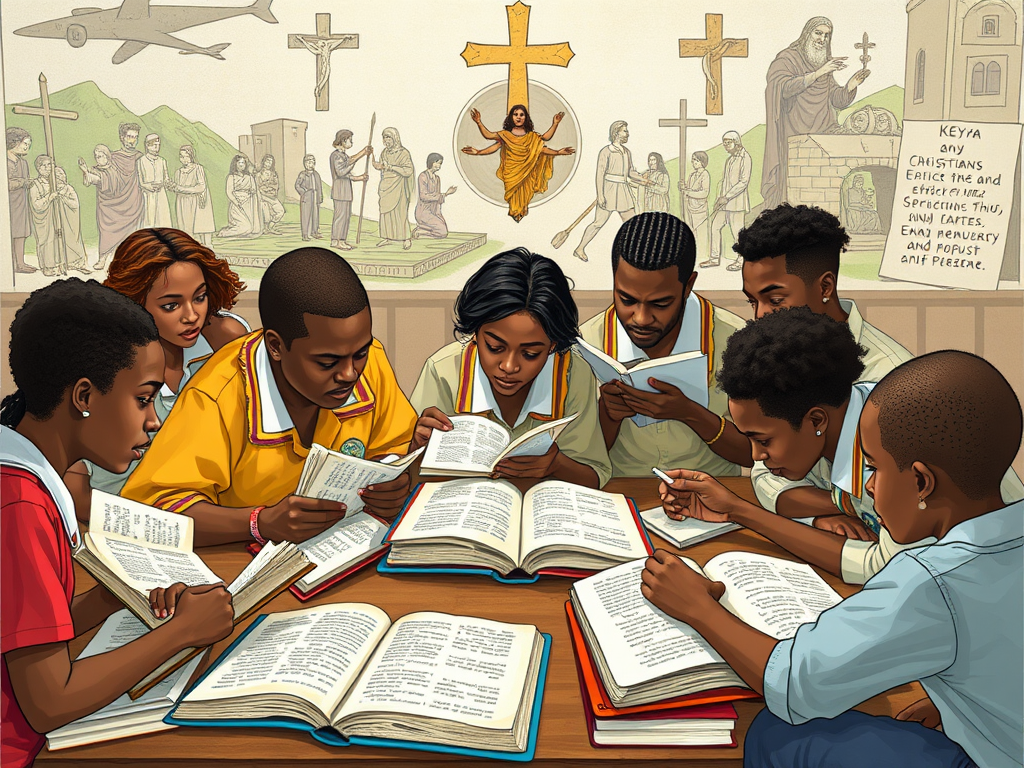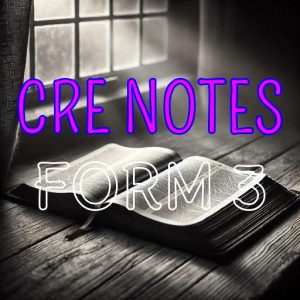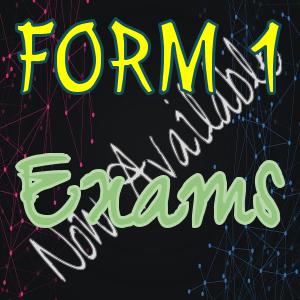Description
Featured Questions
- Seven Teachings About Marriage from the Biblical Creation Accounts:
- What are the seven teachings about marriage derived from the biblical creation accounts? (7 marks)
- Biblical Evidence of God’s Plan for Salvation:
- Provide biblical evidence that God had a plan for the salvation of mankind. (7 marks)
- Human Failure in Responsibility:
- How has man failed to take up their responsibilities as outlined in the biblical creation accounts? (6 marks)
- Preparation of Moses for Leadership:
- Explain four ways in which God prepared Moses for leadership. (8 marks)
- Challenges Faced by Moses:
- Identify problems that Moses faced as a leader. (8 marks)
- God’s Communication with Humanity:
- Outline seven ways in which God speaks to men today. (7 marks)
- Factors Influencing King Solomon’s Temple Construction:
- State six factors that influenced King Solomon to build the temple. (6 marks)
- Achievements of King David:
- What were seven achievements of King David? (7 marks)
- Leadership Qualities from King David:
- What seven qualities of a good leader can modern leaders learn from King David’s leadership? (7 marks)
- Differences Between Old Testament and Traditional African Prophets:
- State five differences between Old Testament prophets and traditional African prophets. (5 marks)
- Oppression of the Poor by the Rich (Amos’ Time):
- State seven ways in which the rich oppressed the poor during the time of prophet Amos. (7 marks)
- Lessons from Old Testament Prophets:
- What eight lessons can Christians learn from the Old Testament prophets? (8 marks)
- Call of Jeremiah:
- Describe the call of Jeremiah. (8 marks)
- Characteristics of the New Covenant:
- What are six characteristics of the new covenant prophesized by Jeremiah? (6 marks)
- Lessons from Jeremiah’s Teaching:
- What six lessons can Christians learn from prophet Jeremiah’s teaching on the new covenant? (6 marks)
- Roles of Traditional Kinship System:
- Explain seven roles of the traditional kinship system in African communities. (7 marks)
- Roles of Diviners in Traditional African Society:
- Outline seven roles played by diviners in traditional African society. (7 marks)
- Disputes Over Property Ownership in Traditional African Communities:
- Give reasons why disputes over ownership of property are rare in traditional African communities. (6 marks)
These featured questions cover a range of topics related to Christian Religious Education and the intersection of faith with cultural practices, leadership, and community roles.




Reviews
There are no reviews yet.